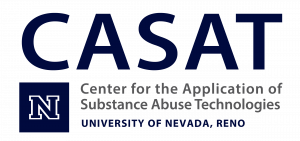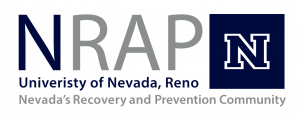Inside Out Peer Mentor Online Training for College Recovery Programs and University Centers
Many CRCs (collegiate recovery communities) start out with a club or a group of people casually getting together to support each other in recovery. CRPs (collegiate recovery programs) are often institutionally supported and provide a place to gather, have recovery meetings, and receive other services. When NRAP was designed in 2011, the goal was to integrate aspects of both CRPs and CRCs, thus, the structure included three levels of membership – club, peer, and mentor. Peer membership was the initial membership implemented and became the core of UNR’s efforts to support students in recovery. After a few years, the club membership level was added and this training represents NRAP’s effort to implement the mentor level of membership.
The goal has always been to have new NRAP members be paired with a trained peer mentor. The Peer mentor comes with significant sobriety time, some training similar to the ROSC’s peer support specialist training, and represents a peer who has proven to do well in the college setting on the seven areas measured by the wellness survey. A peer mentor gives the new student a more formalized peer to confide in and lean on for support and augments services provided by NRAP staff, meetings, and programmatic activities.
Through a special grant supported by SAMHSA, NRAP is now able to train peers to become mentors. Through this online training potential mentors are provided information about recovery, how recovery has been supported within the college environment, and some complicating factors that might emerge with students as they travel their path of recovery. In addition, knowledge that assists in developing a mentor’s skills as a recovery coach are provided through this training and a face-to-face seminar. The final section of this online training asks mentors to “reach beyond” their role as a mentor and to address opportunities for growth, self-care, and service to the field of recovery.
There are 7 modules in this training. While the first three build upon each other, the others are more free standing. Typically you will have an opportunity to hear someone talking about the topic as well as review a powerpoint and frequently see additional videos to help further an understanding of the information provided. We finish this online training with national and local resources and a test to help you determine if you digested the material. We anticipate that this online training can be useful to Peer Recovery Specialists, Collegiate Mentors, and others interested in being knowledgeable about the recovery world.
Click through the modules below to navigate through the course. You can also use the sidebar on the right.



